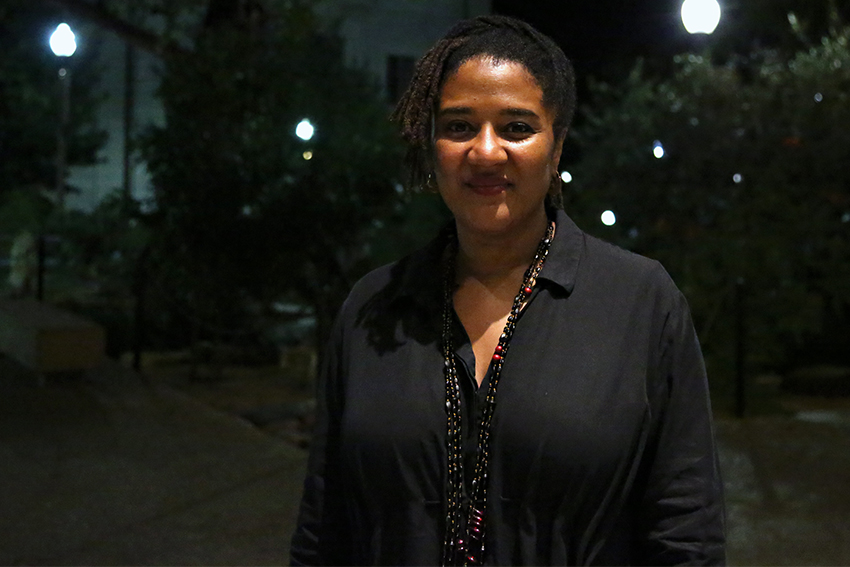Over 100 students and community members filled Rainey Hall on Tuesday to hear Pulitzer Prize-winning playwright Lynn Nottage speak.
Nottage, the first woman to win the Pulitzer Prize for drama twice, talked about how she uses storytelling to give a voice to marginalized communities.
“The theater artist, by trade, is a risk-taker,” Nottage said. “As a theater artist, we must be intrepid, fearless explorers.”
Nottage said theater has an important role in exploring humanity and giving all voices a chance to be heard. She described her plays as “dangerous” because they illustrate a society struggling with racism and sexism.
“We are cultural watchdogs,” Nottage said. “It is a really challenging and awesome undertaking, but it is the role of a theater artist in our culture today. Now, more than ever, we are called to stand at attention.”
Theater is a way to explore major philosophical questions about human nature such as why people love, go to war and how they find happiness, Nottage said.
“We can exorcise our demons,” Nottage said. “We can collectively share our laughter and share our tears. A play allows us to go in search of certain answers to our questions.”
For students such as Kristin Perkins, Nottage’s work has the ability to break social and political boundaries. Perkins, a theatre and dance graduate student, said many people do not recognize theater’s relevance in the world today.
“I think theater has a lot to say about current society … in a way that no other art form can,” Perkins said. “I feel like in a mediatized culture, people can become detached through technology, film and television. We can encourage empathy more profoundly when we’re sitting person-to-person across from each other.”
Geography senior Kate Shirley said she admires Nottage’s work because it brings real world issues to the stage.
“Playwrights are the creators and masterminds of the works, so understanding their motivations can deepen your understanding and raise the stakes in your involvement in the art,” Shirley said.
Theater allows people to explore new ideas while sharing their laughter and tears, Nottage said.
“(A play) merely needs a cast, a creative director and a stage that can support the weight of the ideas,” Nottage said. “I hope that when you have time, you make an effort to support our storytellers.”





















